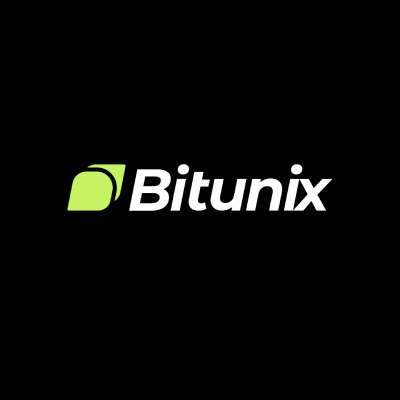Planet Daily | The U.S. unadjusted CPI annual rate in April was 3.4%, expected to be 3.40%, and the previous value was 3

Headlines
The U.S. unadjusted CPI annual rate in April was 3.4%, in line with expectations of 3.40% and the previous value of 3.50%.
The seasonally adjusted core CPI monthly rate in April was 0.3%, in line with expectations of 0.30% and the previous value of 0.40%.
The core CPI annual rate in April was 3.6%, which was expected to be 3.60% and the previous value was 3.80%. (Jinshi)
Swap markets expect Fed rate cuts to accelerate in 2024
Analyst Steve Goldstein said the markets first reaction was positive – stocks rose and bonds also rose. SP 500 futures rose 0.5% from flat, and the 10-year Treasury yield fell 11 basis points. Judging from the data, not only did the US CPI monthly rate in April fall to 0.3%, which was lower than expected, but retail sales in April also did not grow. After the CPI data was released, the swap market expected the Fed to accelerate its pace of rate cuts in 2024. (Jinshi)
Feds Kashkari: We may need to keep interest rates at current levels for a while
Kashkari of the Federal Reserve said that it may be necessary to maintain interest rates at the current level for a while to figure out the direction of inflation. The Feds balance sheet reduction is progressing smoothly and is committed to achieving the 2% inflation target. (Jinshi)
Industry News
JPMorgan, BNP Paribas and Deutsche Bank team up with ECB to advance tokenization
JPMorgan Chase, Deutsche Bank and BNP Paribas are teaming up with the European Central Bank to advance tokenization, a project that is testing the use of blockchain technology to settle securities trades.
The ECB’s tokenization experiment began in December last year and is still in its early stages and will continue until November this year. When the ECB’s director of market infrastructure and payments, Ulrich Bindseil, first announced the tokenization experiment in December last year, he said: “We are trying to look to the future and think about how the form of central bank money can remain useful.”
Fed Governor Bowman: States and the federal government need to cooperate in the field of stablecoins
Federal Reserve Governor Michelle Bowman urged states and the federal government to form a partnership to jointly regulate stablecoins while lawmakers work on bills to do so.
Asked at the Chamber of Digital Commerce’s DC Blockchain Summit on Wednesday what role states and the federal government should play in addressing stablecoins, Bowman said states are more willing to discuss expansion in the space, “and the important thing for me is partnership.”
Bowman said: The U.S. currency is accompanied by risks such as runs, which may require us to provide protection for the dollar. Therefore, from the Feds perspective, it is important that we have the ability to participate and negotiate with any final framework, whether it is the current bill or other frameworks that emerge as stablecoins develop in the United States. The Fed should have a seat at the table in the negotiation process. (The Block)
US House of Representatives to vote on FIT 21 market structure bill next week
The full U.S. House of Representatives plans to vote next week on a market structure bill called (FIT 21), which includes some new provisions, including regulations on when cryptocurrencies should be considered securities. The House of Representatives already has a group of pro-crypto representatives, and (FIT 21) is likely to pass the House smoothly, but it will face obstacles in the upper chamber.
The Financial Innovation and Technology in the 21st Century (FIT 21) Act aims to provide a clear regulatory framework for digital assets and address long-standing market regulation and consumer protection issues.
Project News
Sonne Finance suffered an attack that cost it over $20 million and has suspended its Optimism market
According to Paiduns monitoring, the DeFi lending protocol Sonne Finance was hacked and its time-lock contract needs to be carefully checked. The current loss exceeds 20 million US dollars.
Sonne Finance posted on the X platform that all Optimism markets have been suspended. The markets on Base are safe and more information will be provided in a timely manner.
Blast: Airdrop will start on June 26
Ethereum L2 network Blast said in a post that its airdrop activity will be launched on June 26, which is beyond the originally expected May. Sorry for the delay, the airdrop allocation will be increased. Before the airdrop, there will be two final Dapp Gold allocations.
NFTScan data shows that the NFT transaction volume on the Base chain reached US$11.6 million in the past 7 days, ranking first in L2; in addition, the NFT transaction volume on the zkSync Era chain reached US$9.9 million in the past 7 days, ranking second; the NFT transaction volume on the Blast and Arbitrum one chains reached US$1.5 million in the past 7 days, ranking third.
Character*Voice
Insider: BlockTower Capitals main hedge fund was attacked and some funds were drained
BlockTower Capital’s main hedge fund has been hacked by fraudsters and some of its funds have been drained, according to people familiar with the matter.
The funds remain unaccounted for and the hackers have not been arrested, but BlockTower Capital has hired blockchain forensics analysts to determine how the funds were stolen and recently notified its limited partners of the theft, one of the people said.
BlockTower declined to comment on the hack.
BlockTower Capital has $1.7 billion in assets under management, according to data provider PitchBook. (Bloomberg)
Insider: Lido Lianchuang and Paradigm are investing in re-staking project Symbiotic
According to people familiar with the matter, the re-pledge project Symbiotic has received support not only from Cyber Fund, a venture capital firm owned by Lido co-founders Konstantin Lomashuk and Vasiliy Shapovalov, but also from venture capital firm Paradigm.
According to internal Symbiotic documents obtained by CoinDesk, users are allowed to use Lidos stETH to re-stake with other assets that are not natively compatible with EigenLayer. Developed by the staking service team formerly known as Stakemind, Symbiotic will be a permissionless re-staking protocol that provides a flexible mechanism for decentralized networks to coordinate node operators and economic security providers. Several teams working in the emerging re-staking ecosystem have said they are already discussing integration with Symbiotic, including AVS and building a liquidity re-staking service on EigenLayer.
Liquidity re-staking protocol Renzo is already in discussions to integrate with Symbiotic after its launch, according to people familiar with the matter.
Representatives for Paradigm, Symbiotic and Cyber Fund declined to comment for this story. (CoinDesk)
Investment and Financing
Humanity Protocol announced that it has completed a new round of financing of US$30 million at a valuation of US$1 billion, led by Kingsway Capital, with participation from Animoca Brands, Blockchain.com and Shima Capital. Founder Terence Kwok said the company also raised about US$1.5 million from influential crypto figures among KOLs.
Kwok said the startup plans to launch its test network in the second quarter, and currently has a waiting list of about 500,000 people. When it rolls out its technology, it plans to first release an app that can use a phone camera to scan people’s palm prints to determine their identities.
It is reported that Humanity Protocol uses palm print recognition technology and zero-knowledge proof to ensure user privacy and security, aiming to provide an easily accessible and non-intrusive method for establishing human proof in Web3 applications. (Bloomberg)
Crypto prediction market Polymarket has completed two rounds of financing totaling $70 million. The latest round of financing was led by Founders Fund and others, and Ethereum co-founder Vitalik Buterin and others participated. A Polymarket spokesperson said that Founders Fund led the $45 million Series B financing. General Catalyst earlier helped the company raise $25 million in Series A financing. (Bloomberg)
The tokenized reinsurance RWA platform Re has completed a new round of financing of US$7 million, led by Electric Capital. It is reported that the project had completed a seed round of financing of US$14 million at the end of 2022. Res goal is to support US$200 million in premiums by the end of this year. (Coindesk)
Solana on-chain DEX Zeta Markets completes $5 million financing, led by Electric Capital
Solana DEX Zeta Markets announced the completion of a new round of $5 million in financing, led by Electric Capital, Digital Asset Capital Management, Selini Capital and Airtree Ventures, as well as angel investors including Anatoly Yakovenko of Solana, Mert Mumtaz of Helius, Richard Wu of Tensor, Genia Mikhalchenko of Pyth, JMR Luna of Wintermute and Nom of Bonk. (TheBlock)
This article is sourced from the internet: Planet Daily | The U.S. unadjusted CPI annual rate in April was 3.4%, expected to be 3.40%, and the previous value was 3.50%; the swap market expects the Fed to accelerate the pace of interest rate cuts in 2024 (May 16)
Related: BNB Price Analysis: Is a Correction Below $500 Imminent?
In Brief BNB Daily Transactions recently hit its lowest level since February 25. Between March 31 to April 1, SAR metric changed its pattern from bullish to bearish. EMA Lines are forming a consolidation pattern, but the short-term lines are dangerously approaching the long-term lines, which could form a death cross. The BNB price could potentially react to recent market dynamics, notably as BNB Daily Transactions reached their lowest point since February 25. From March 31 to April 1, there was a significant shift in the SAR metric, transitioning from a bullish to a bearish pattern. Concurrently, the EMA lines are showing a consolidation pattern. However, there’s a concerning trend where the short-term EMA lines are nearing the long-term ones, potentially leading to the formation of a death cross. BNB…







